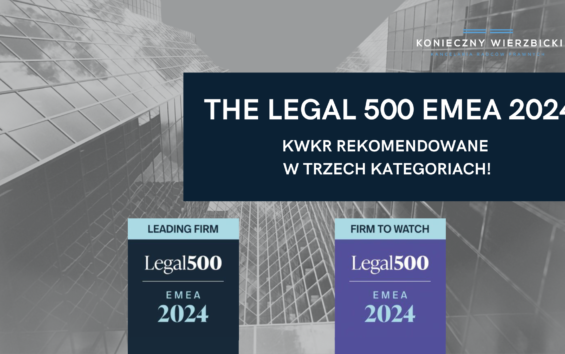
One of the increasingly popular forms of investing in start-ups are convertible loans to shares. Before deciding to use this solution, it’s worth having a look at the benefits and risks it entails.
What is a convertible loan?
A convertible loan is a form of debt financing. The investor advances a loan to a start-up, but—instead of having it repaid with interest—he takes up shares in the start-up at the moment of conversion, with preference. The rules of advancing and converting loans are in each case individually agreed between the parties to the agreement. However, this solution is still rarely used in Poland, even though it enjoys high popularity in other countries, especially the USA. The reasons behind this include the fact that investors have less trust in this mechanism, as well as the use of collaterals other than those prevalent in typical investment agreements, which the start-up founders not always find acceptable.
Why is a convertible loan a good idea?
The main advantage of this solution is that the agreement can be executed quickly. This is because drafting it is relatively simple. A convertible loan agreement does not entail as many complications as for instance an investment agreement—it does not have to be signed in the presence of a notary and corporate governance and share options do not have to be specified in such detail as in a typical investment agreement.
In comparison with an investment agreement, a convertible loan agreement provides more flexibility in specifying the number of shares the investor is entitled to. The investor receives his shares only after some time, when the company has been operating for a while and can be valuated. It’s good to remember that too early a valuation of a start-up is not only detrimental to both parties, but sometimes can be simply impossible. Therefore, both parties avoid the risk related to handing over to the investor a piece of the start-up cake that is too large or too small, at a stage when the value of the cake is not yet known.
Financing through the convertible loans
A convertible loan agreement may provide for various principles of converting the loan to shares. The two main ones, on which most of the formulas are based, are CAP and DISCOUNT. CAP is a parameter that specifies the maximum valuation at which the conversion may take place. If the valuation of the company is higher than the CAP, the investor, on the basis of the convertible loan agreement, may convert to shares at a lower price.
The other option is DISCOUNT where the conversion price for the investor is reduced. If the shares have a specific issue value, the investor will be entitled to take up his shares, through conversion, at a lower price. The most frequent discount rates are between 10% and 35%.
Risks related to a convertible loan
The decision to take advantage of or advance a convertible loan also entails certain risks. The main inconvenience related to this type of a loan is that investors often require for a collateral to be established on the personal assets of the founders.
Converting the loan to capital is also unclear from the tax point of view and in some cases may be classified as a contribution in kind. This may entail the need to pay income tax on the contribution following the conversion. However, if the conversion is properly handled, this risk is minimized. Furthermore, unlike contributions in cash, loans are subject to the tax on civil law transactions.
The lawyers from our Law Firm can propose methods of optimizing the transaction that will help you recruit investors interested in investing by means of a convertible loan. Do you have questions concerning convertible loans? We will be happy to answer them. Contact us.



